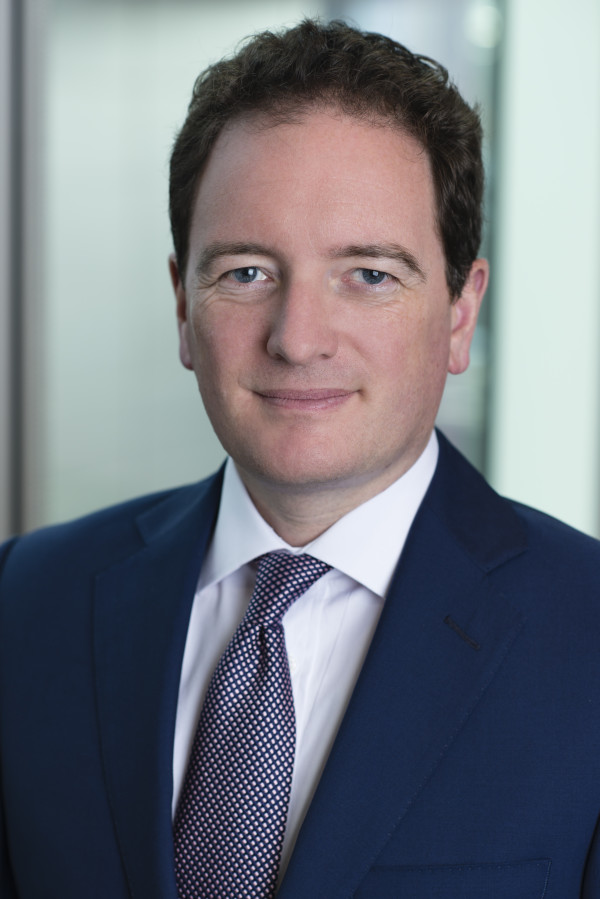

UBS, one of the biggest banks in Europe, is launching its own model in 2017. Called UBS SmartWealth, it is hoping to appeal to a demographic with up to £100,000 to invest, in a move intended to develop a new pipeline of clients who may eventually get richer, and qualify for the bank's more sophisticated wealth management service.
Nick Middleton, whose background is private client work, and Shane Williams, the IT expert, are its co-heads who expect the new service will distinguish itself by being much closer to the original human financial advice experience.
Mr Williams said: "There's a high level of trust in UBS, and the digital advice service might lead people to put their £15,000 to try it, and then they would bring more assets across if they felt good about the service.
Anyone joining up will go through a series of questions in an interactive – or chat – format, such as how much people earn, how much they spend, how long they want to be invested for so it "should feel more like a conversation with an adviser."
The pair make a very clear point that the service is unlike other Robo-advisers by going deeply into a person's circumstances and stress-testing the answers a client gives.
Mr Middleton said: "It asks about whether you've lost money or what kind of behaviour would you have if you lost money, and it comes up with the most appropriate strategy for the outcome you want to achieve, then you can start to visualise what your financial future will look like.
"Rather than say how risky is this, we will stress-test it – the thought process behind it came from regulated individuals like me and client advisers. We sat down and went through any questions we would want to ask of any client."
The SmartWealth system will make a recommendation after its assessment of the client, and Mr Middleton said he will initially check 100 per cent of all the recommendations. The service has a team of investment experts to monitor the recommendations on a daily basis to ensure the portfolio is still correct. The system will also be checked by the bank's compliance teams.
Mr Middleton said this marked his service out from other 'simpler' versions. He said: "The discretionary managers in the robo-advice space would assess the level of risk and they give you a portfolio which meets that expectation. Whether that's the right place [longer term] is not tested. If anything went wrong, there would be very little redress."
With Smartwealth, the advice is constantly revised, he said. "We will check whether anything has changed during the course of your life: whether your employment situation has changed or if you invested more money than you said you had to invest, for example. We would retest the suitability, so if you said you had £100,000, but you had £120,000, the advice we gave you might no longer be suitable.
"For other people, if you say you put in £100,000, and then put in £120,000, there would be smiles all round."
This sounds plausible, and potential corporate clients have come forward to express an interest in using SmartWealth for their employees, but there are costs involved. Ongoing charges are 1.7 per cent for an active fund and include all of the charges associated with the service: the advice fee and the fund charges.
This comes to the next point. All of the investment suggestions will recommend a UBS strategy, which may or may not have a UBS fund.
Mr Middleton said: "We have five strategies, and you can choose whether of not you want to execute that through an active version or a passive version. We already have these strategies set up, and they are managed by UBS, according to the CIO asset allocation.
"However, the expression of the underlying investments is whole-of-market. If the best option is Threadneedle, we will use Threadneedle. We have the ability for our investment managers to choose any third party fund that is performing the best, but at the end of the day the client is buying a single UBS fund."
The service was dreamed up in Switzerland by the UBS Innovation Lab, which thinks up new things the company should be doing. The pair come at it from different angles: Mr Middleton has been a client adviser for a more conventional UBS customer – those with investable assets of at least £2m – while Mr Williams has been on the IT side of the business for 10 years.
The pair claim there is a form of redress through the Financial Ombudsman Service and the bank has its own complaints handling process, with every data point being traceable.
The pair are adamant that they are not stepping on advisers' toes. Mr Middleton said: "An IFA will assist a client with his pension review or life assurance and look at his mortgage. There's an awful lot of things they talk to their client about.
"If he sees you've got some money left over does he want to take on the professional indemnity himself or does he want to outsource it? That DFM space, where they will take on the IFA client, there's no reason why we can't do that ourselves."
Melanie Tringham is features editor of Financial Adviser
Nick Middleton
2016 – co-head UBS SmartWealth
2012-2016 – executive director, UBS Wealth Management
2009-2012 – director, UBS Wealth Management
1996-2009 – senior investment director, Rensburg Sheppards
Shane Williams
2016 – co-head UBS SmartWealth
2015 to present – programme manager, UBS SmartWealth
2014 to present – WM CIO Account manager and innovation leader, UBS Wealth Management
2011-2014 – executive director, mobile client facing technology, UBS
2006-2011 – reference data programme delivery manager, UBS Investment Bank
2002-2006 – development operations and project management, ABN Amro



